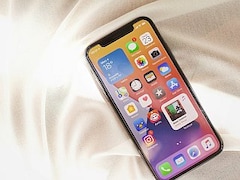- Home
- Apps
- Apps Features
- Why Uber Is Selling Its Southeast Asian Business to a Local Rival
Why Uber Is Selling Its Southeast Asian Business to a Local Rival

Uber will sell its business in Southeast Asia to a local competitor, Grab, the ride-hailing company announced late Sunday, in a deal that experts say is designed to position Uber for an initial public offering next year.
Grab will purchase Uber's ride-hailing and food delivery operations in the region in a deal valued at several billion dollars, according to a person familiar with the acquisition who spoke on the condition of anonymity because they were not authorized to speak publicly. Uber will receive a 27.5 percent stake in the Singapore-based Grab, and chief executive Dara Khosrowshahi will join Grab's board, the companies said.
Uber's sale in Southeast Asia, where Grab claims 5 million daily users, follows several strategic deals in competitive international markets. Yandax, a Russian rival, merged with Uber last year in a deal valued at $3.7 billion. And in 2016, Uber sold off its local operations to the dominant Chinese ride sharing service, Didi Chuxing. Like the prior transactions, the deals free Uber to invest in other, more lucrative markets, while granting the company a stake in their competitors' expanding businesses, experts say.
David Kass, a professor of finance at the University of Maryland, said the deal with Grab is part of a broader strategy to make the company look as attractive as possible for potential investors. "Uber is looking ahead to their expected IPO in 2019, and they need to shore up their balance sheet and income statement," he said. "They are focusing on where they believe they are more likely to succeed, both in terms of profits and in terms of sales growth."
Khosrowshahi has already begun to narrow Uber's losses, shifting the company's strategy from growth-at-all costs to a more measured, pragmatic approach. According to reports, the company suffered $4.46 billion (roughly Rs. 28,900 crores) in losses last year, but improved over time, losing $1.1 billion in the fourth quarter, compared with $1.5 billion in the third quarter.
"One of the potential dangers of our global strategy is that we take on too many battles across too many fronts and with too many competitors," Khosrowshahi told Uber employees, according to an email posted by the company Sunday night. "This transaction now puts us in a position to compete with real focus and weight in the core markets where we operate, while giving us valuable and growing equity stakes in a number of big and important markets where we don't."
Grab co-founder Tan Hooi Ling said the newly bolstered company will expand its food delivery service, GrabFood, into all major Southeast Asian countries within the next three months. "Today's acquisition marks the beginning of a new era," said Anthony Tan, Grab's chief executive.
Uber has already invested $700 million in Southeast Asia, according to the person familiar with the sale. The company has no plans to take a minority stake in any other international markets and will continue to invest in its core markets overseas, including India, the Middle East and Latin America, the person said.
© The Washington Post 2018
For the latest tech news and reviews, follow Gadgets 360 on X, Facebook, WhatsApp, Threads and Google News. For the latest videos on gadgets and tech, subscribe to our YouTube channel. If you want to know everything about top influencers, follow our in-house Who'sThat360 on Instagram and YouTube.
Related Stories
- Galaxy S24 Series
- MWC 2024
- Apple Vision Pro
- Oneplus 12
- iPhone 14
- Apple iPhone 15
- OnePlus Nord CE 3 Lite 5G
- iPhone 13
- Xiaomi 14 Pro
- Oppo Find N3
- Tecno Spark Go (2023)
- Realme V30
- Best Phones Under 25000
- Samsung Galaxy S24 Series
- Cryptocurrency
- iQoo 12
- Samsung Galaxy S24 Ultra
- Giottus
- Samsung Galaxy Z Flip 5
- Apple 'Scary Fast'
- Housefull 5
- GoPro Hero 12 Black Review
- Invincible Season 2
- JioGlass
- HD Ready TV
- Laptop Under 50000
- Smartwatch Under 10000
- Latest Mobile Phones
- Compare Phones
- Huawei Pura 70 Pro
- Huawei Pura 70
- Vivo V30e
- Itel Super Guru 4G
- Huawei Pura 70 Pro+
- Huawei Pura 70 Ultra
- Tecno Camon 30 Premier 5G
- Motorola Edge 50 Fusion
- Asus ZenBook Duo 2024 (UX8406)
- Dell Inspiron 14 Plus
- Realme Pad 2 Wi-Fi
- Redmi Pad Pro
- Cult Shock X
- Fire-Boltt Oracle
- Samsung Samsung Neo QLED 8K Smart TV QN800D
- Samsung Neo QLED 4K Smart TV (QN90D)
- Sony PlayStation 5 Slim Digital Edition
- Sony PlayStation 5 Slim
- Voltas 1.5 Ton 3 Star Split AC (183 Vectra Elegant 4503545)
- Hitachi 1.5 Ton 5 Star Inverter Split AC (RAS.G518PCBISF)

















